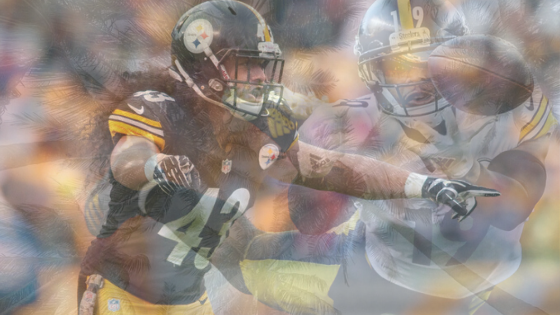Samoan Mentality: Why Polynesian Islanders are Built for Sports

A Samoan male is 56 times more likely to play in the NFL than a non-Samoan American. More than 50% of players in Australia’s National Rugby League competition have Polynesian roots and more than 20% of all foreign players in the French Top 14 rugby competition have Polynesian heritage.
Polynesians are one of the hottest exports in sports. There is an ongoing pipeline of famous stars, some of them you may not have known even have known have a Polynesian bloodline.
Names like Dwayne ‘The Rock’ Johnson (WWE & actor), Tua Tagovailoa (American Football), JuJu Smith-Schuster and Kendrick Bourne (NFL), Tony Finau (Golf), Sean Manaea (MLB), Steven Adams, Jabari Parker and James Johnson (NBA) are Polynesians in current mainstream sports in the United States.
The Polynesian Islands are made up of over a thousand islands in Oceania scattered over the central and southern Pacific Ocean. Although there are only about two million Polynesians worldwide, they’re represented across American, Australian and European sports.
Polynesians are built for sport, genetically built with natural athleticism. Combined with the Polynesian way of life, individuals are driven not only to perform for themselves and their families, but for their extended family and entire communities.

Former NFL defensive tackle Haloti Ngata’s father Moala summed up the Polynesian warrior mentality best. “Polynesian players are built for combat, built for football. Big, strong, fast. We love contact.” he continued. “That’s been the history of our people. The warrior spirit is within us”.
Former Pittsburgh Steeler, 8x Pro Bowler and 2x Super Bowl Champion Troy Polamalu once said “I have developed a Samoan mentality. You have to be a gentleman everywhere but on the field.
His aggression and versatility playing at strong safety led to a massive 32 interceptions, 14 forced fumbles and 3 touchdowns. He had an impact on the way the game was played so much so, he recently became a first-ballot Hall of Famer proving just how special a player he was.
Polynesian culture has a very specific socio-political and traditional-customary way of life. These incredibly powerful traditional systems of accepted social behaviors and responsibilities places a strong emphasis on family that also includes the extended family.
Troy Polamalu was very vocal about his Samoan roots and an advocate for Polynesian culture throughout his career.
“All of my Polynesian counterparts in the NFL with roots in American Samoa understand how the values embedded in our South Pacific culture – community, hard work, perseverance, respect – contribute directly to our success”.
Sports and the financial rewards it brings allows for players to reach their goals and help out their families at the same time.
Unemployment in American Samoa is at 30% and there are little job opportunities, fueling the drive for Polynesians to become good at sport.
Polynesians are not only fending for themselves, but also for their families, extended families and communities who watch from the sideline with high expectations.
The deep rooted cultures are an extremely powerful factor that translates into sporting performance and mentality. The combination of genetic build and the cultural mentality makes Polynesian Islanders perfectly built warriors for sports.

Congratulations @wolfgangsport!
You raised your level and are now a Minnow!
Vote for @Steemitboard as a witness to get one more award and increased upvotes!